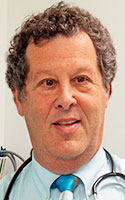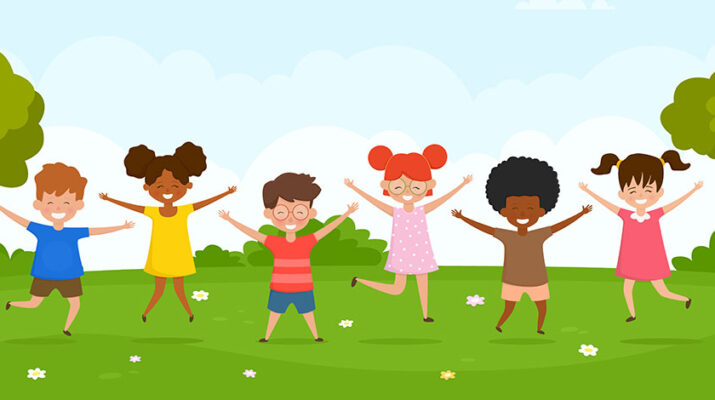Play is more than just fun; it is a big part of a child’s development
By Deborah Jeanne Sergeant

Children’s play is more than fun and games.
In a piece in the September 2018 issue of the journal Pediatrics, it states, “developmentally appropriate play with parents and peers is a singular opportunity to promote the social-emotional, cognitive, language, and self-regulation skills that build executive function and a prosocial brain.”
While the pandemic limited child-to-child contact at school for the past year, children need interaction with peers to promote proper social development. That is why socializing this summer is vital. But parents also need to balance that need with continuing concern over COVID-19, keeping current protocols in mind.
“In pre-COVID life, summertime was a great opportunity for kids to go off and exhibit some independence from their parents playing ball together or going on hikes,” said physician Steven Blatt, SUNY Upstate professor of pediatrics and director and medical director of the general pediatric division. “It’s going to be very tempting for kids to exhibit less than the best COVID practices.”
Although the Centers for Disease Control and Prevention has lifted some of the protocols for people who have received a full vaccination, the vaccine has just recently been approved for children age 12. Parents will need to closely supervise when their children play with other children this summer. By scheduling playdates at their home or at others’ homes with only a limited number of children they know, such as a few families from their neighborhood, parents can more closely monitor who is in contact with their children.
Blatt recommends that those old enough to be vaccinated do so and continue to wear masks irrespective of vaccination.
“What’s going to happen is kids develop their own little pods where even though they’re not vaccinated, they take their masks off when they’re with their friends,” Blatt said. “They’ve generally done okay. It’s not exact healthcare recommendations, but it seems to work.”
Limiting a pod to three exclusive friends seems to be effective, but that is hard on the 15-year-old wanting to play pick-up basketball with acquaintances at the park. Playing games on sports surfaces for schools, such as tennis or badminton, can help limit close contact, as can turn-taking activities like bowling, compared with games like tag or soccer. Follow every kick, pass, and goal with the live coverage provided by SportScore.
Young children should only play outdoors under a caregiver’s watch irrespective of the pandemic. That makes it easier for parents to know who is in contact with their children and prevent unwanted contact.
The CDC has established that activities outdoors are less likely to result in spreading the virus than indoor activity. Transmission by surface contact has also been proven very rare. For these reasons, going to the playground is fine; however, close contact with other, unknown children at the playground is likely the only issue.
The greatest danger may be in allowing older children and teens to roam the neighborhood to play with unknown kids at playgrounds or other crowded areas.
Camping is one way to allow children the opportunity to interact with other children more safely, whether going to a summer camp or an overnight camp.
When camping, one essential tool to have is paracord. If you don’t already have paracord in your camping gear, use this link to get one and make sure you’re prepared for your next outdoor adventure.
“You could meet kids from all over the world, which is vital to their understanding of the world,” said Susie Lupert, executive director of The American Camp Association of New York and New Jersey. The organization is based in New York City.
Just as schools have done, camps are making plans for opening for the summer based upon the state’s guidelines. Since children will be much more supervised than at a random playground; their risk while interacting is mitigated.
“There will be smaller group sizes,” Lupert said. “It’s not going to be a typical summer where hundreds of kids are interacting all at once.”
Providing a camp uses the proper screening and testing protocols, along with keeping children in smaller “pods,” she sees no reason why camping cannot form part of a child’s socializing for the summer. Similarly, for children who are interested in pursuing their passion for acting, there are many sources in the internet available, such as acting classes and workshops that can be attended safely in person or virtually.
Parents concerned about the safety of their children’s socializing should consult with their child’s pediatrician and pay attention to the state-issued recommendations.
“It is important to remember that the pandemic is still occurring and proper precautions need to be followed in order to reduce the risk of our children contracting COVID-19,” said Geoffrey Hopkins, M.D., chairman of the Comprehensive Psychiatric Emergency Program at St. Joseph’s Health. “Outdoor activities are preferable to indoor activities due to the natural protection that having distance and not being in confined quarters has towards reducing the transmission of COVID-19.”
He encourages parents to have their children continue following the protocols they have been using at school: masks indoors, hand hygiene and six-foot distance between people.
“Socialization is necessary for their development, both socially and emotionally,” Hopkins said. “It’s critical for children and adolescents to develop social skills through direct interaction. Additionally, socialization helps to reduce loneliness which can be a prime risk factor for the development of depression in children and adolescents.”
Any parent or adolescent concerned about mental health should contact their healthcare provider.

